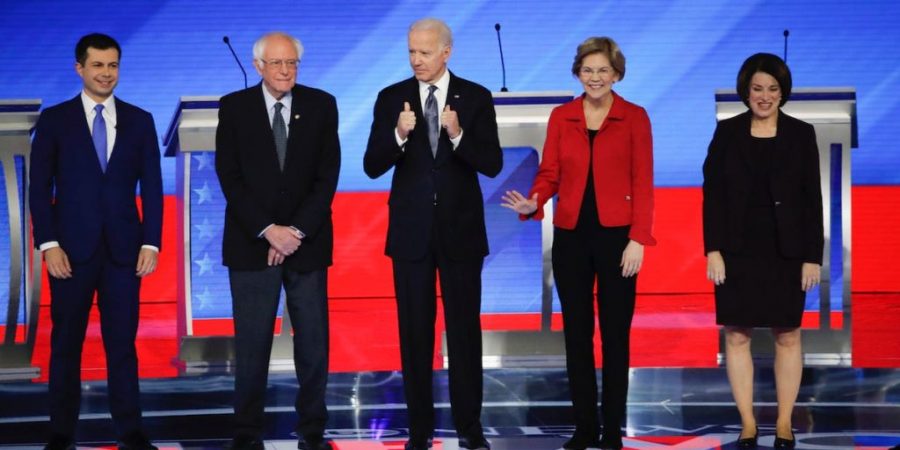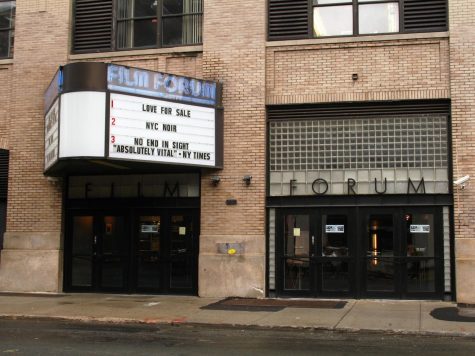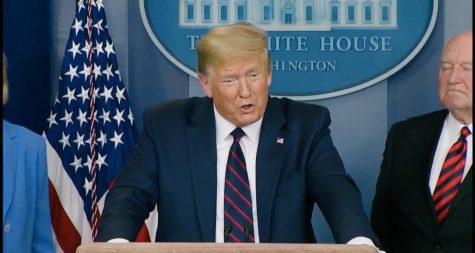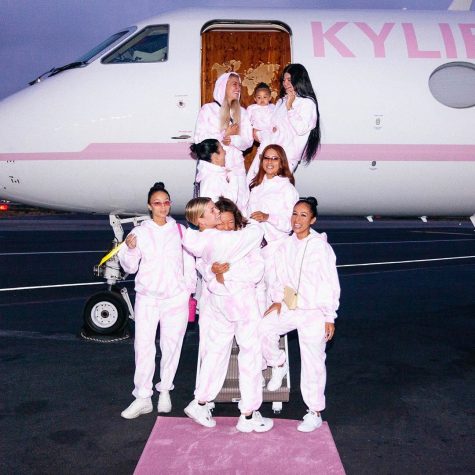The Reality of Age in the Presidential Election
February 19, 2020
Would you rather elect the oldest presidential candidate in history, or the youngest? This question seems to reflect the conflict present amongst current Democratic candidates. Bernie Sanders, 78, and Joe Biden, 77, would be the oldest presidents elected into office by a substantial amount, seeing as the oldest president ever inaugurated is the current president, Donald Trump, who was 70 years old when he first entered office. On the flip side, Pete Buttigieg, at 38 years old, would be the youngest president elected, replacing Theodore Roosevelt, who was 42 years old when he assumed his position as president.
The topic of age has become somewhat of a political tool, with older candidates teasing younger candidates for their lack of experience and younger candidates discrediting older ones as being unrelatable.
One would assume that age would play a heavy role in the election because of the prevalent frustration amongst Democrats who feel unrepresented in political roles. One of the most frequently lamented comments nowadays is that those in office don’t truly represent the people. Congress and other governmental positions seem to be chock-full of infamous “old white men,” lacking the diversity and representation that young America craves. That is why it would make sense that Democratic voters would find older candidates unfavorable. However, this is not the case.
Although people claim to be upset with the amount of older white men in positions of power, young voters are more than ready to elect yet another one into office. It is extremely ironic that Sanders’ fan-base is made up of younger voters, seeing as they are voting for the opposite of what they say they want. This goes to prove that many people do not really care about a candidate’s own qualities, but about what they speak for and represent. Many of Sanders’ voters don’t really care about his age, his race or any of his other personal demographics, but about the causes he supports.
This provokes a new question of whether or not voters should care about age in the presidential election. After all, there are certain risks that come with electing an older president. Sanders, for example, would be at least 82 years old after a first term of presidency. Could he even do a second term? It is difficult to talk about this issue because there is a fine line between brutal honesty and ageism. But, with two candidates running who would be the oldest inaugurated presidents to date by a good eight years, these questions need to be asked. In fact, even the Constitution must be questioned at this point. There is a minimum age for running for president, assumedly to ensure that candidates gain enough experience before succeeding to the presidency, yet there is no maximum age. Why not? If America elects Sanders at 78, what will stop us from electing an 80 year old as president? Or a 90 year old?
Frankly, it becomes irresponsible after a certain point. I don’t say this out of contempt towards Sanders, but from a purely logistical standpoint. After all, it is not like Sanders’ voters can argue he is the pinnacle of health, especially after the heart attack he suffered during his campaign in 2019. Biden, who has had some issues with his heartbeat and cholesterol levels, demonstrates otherwise fine health, with his doctor stating that he is a “healthy, vigorous, 77-year old,” which sounds a bit oxymoronic to me. The fact remains that both of these men are in their late seventies, and will be well into their eighties
The public ignores these facts because Sanders does not act as old as he is. He is sprightly and energetic. He knows how to excite his crowd and is backed by plenty of people who adore him as a candidate. His rallies are thrilling and make voters feel like they are part of a special movement. It becomes much easier for voters to forget that Sanders is an old man when he doesn’t act like one. However, does this justify voters’ actions? It is excusable for voters to knowingly vote an aging man into office simply because he puts on a lively show?
The same cannot be said for Biden. As a self-proclaimed “old guy,” Biden has mentioned that the top quality he is looking for in a vice president is someone who could quickly step in, because of his old age. It is evident that Biden is attempting to use humor to deflect criticism, but it only further deepens the disconnect between himself and voters, such as when he called a student a “lying, dog-faced pony soldier,” a reference so outdated that it remains older than most of his own voters.
Age has often played a role in past presidential elections, such as during the televised debate between Richard Nixon and John F. Kennedy, which ultimately led to Kennedy’s success. Nixon had turned down an offer to practice with the stage pre-production, and had refused to wear makeup, downplaying the importance of looks in an election. This backfired, making Nixon seem old and sickly and leading voters to deem him unfit to be president.
The opposite seems to be happening today. Voters are more than happy to vote another old, white man into office as long as he does not act like one. America does not seem to truly care if the candidates are healthy, as long as they put on a convincing facade of health and vigor. One can only hope that this method does not have an adverse effect. The presidency is a difficult, tiresome position, being both mentally and physically draining. The responsibility lies on the people to vote someone into office who can sustain it.
Taylor Herzlich, GSB ’23, is a business administration major from Mt. Sinai, N.Y.












If you want a picture to show with your comment, go get a gravatar.